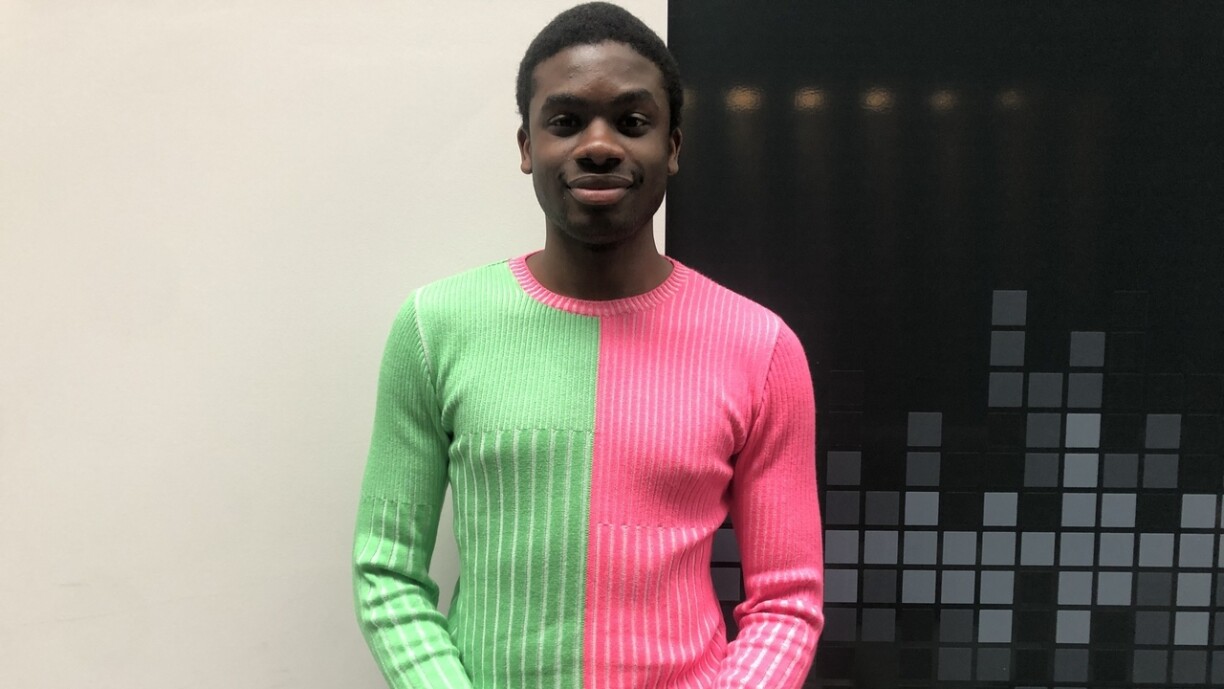
24-year-old Khalid Oke, a musician studying pedagogical and social sciences at the University of Luxembourg, was also asked whether he has a residence permit. He has since shared the experience of this encounter on social media, one of many examples that outline discrimination in present-day Luxembourg.
“I received very strange comments from this person and it really affected me, the comments were also more about refugees from Nigeria, my heritage, and it really was utterly horrible.”
Oke was hurt by what happened to him in this job interview, which was conducted with an association active in the social sector.
“The question I was asked was ‘where are you from?’, to which I replied ‘Ettelbruck’. And then she said ‘no, where are you really from?’. I explained that my origins are in Nigeria, which one might still hear although I have lived here in Luxembourg all my life and feel like a Luxembourger.”
Oke was also asked whether he is in the country legally and where he went to school. However, the interview did not end with these questions, which another candidate might not have faced.
“How would I, as a social worker, treat a Nigerian who is in the country illegally? I then said that I would do as the law requires for everyone, we are all equal regardless of who we are. The ethical code also indicates that we have to set aside all prejudices, stereotypes, and biases that we might have towards others. As a social worker, I have to act in a professional manner.”
Oke went on to clarify that if he was dealing with a child, he would ensure the child’s rights were protected, that they had a roof over their head and the means to attend school. The interviewer commented: “You can’t do that, otherwise they’ll bring their whole family over. They’d have the right to bring their family here, otherwise every refugee or immigrant would do the same to get their residence or work permit.”
The encounter left Oke horrified and with an uneasy feeling in his stomach. He said it was therefore important to him to make use of his platform to openly discuss the experience.
“For all the people who claim that discrimination and racism do not exist here, that is nonsense. It does exist here - and worse, in fact, because it is indirect discrimination, and the people who discriminate are often not even aware they are doing it.”
Oke said he was fairly certain the interviewer did not realise how bad the experience was for him. He has since contacted the Centre for Equal Treatment (CET) to see how he himself can discuss the issues with the interviewer.
“I think that would be more productive than the CET sending a letter, because that would make it seem as though I am putting myself above this person, which I do not want. I want that person to see that we are both humans and that there is something to learn from this encounter.”
The CET treated 245 cases in 2021, out of which 60 were about ethnic discrimination. Data from 2022 are still being evaluated, but it seems as though this type of discrimination has remained most prevalent. Depending on the severity of the case, the Centre encourages people to go to the police or even forward it to the prosecutor’s office themselves.
Reactions to interventions from the CET are said to range from proactive to defensive or even a complete lack of acknowledgement. In such cases, the Centre is forced to close the file after a number of reminders. The limited possibilities are not always satisfactory for affected people, admits the CET.
In 2021, more than a fifth of people abstained from taking action once the Centre had laid out possibilities, which is why the CET has long advocated for an expansion of its competences. A respective exchange is currently being held with the Chamber of Deputies. In recent years, the CET has repeatedly demanded that they be granted the possibility of taking people to court.
PDF: Second European Union Minorities and Discrimination Survey - Being Black in the EU